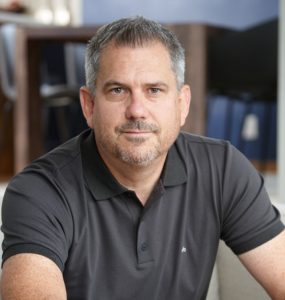As you may have heard, it has been a rough quarter for both U.S. and international equity markets. Nevertheless, a well-diversified portfolio should have weathered the storm much better than an undiversified portfolio. As you can see from the chart below, the worst performing asset classes this quarter were U.S. large stocks, U.S. small stocks, and emerging markets. The best performing asset classes for the quarter were real estate, short term bonds, and intermediate term bonds.
The following chart shows the 3-month, 5-year, and 10-year performance of many DFA funds (representing different asset classes) compared to the S&P 500 Index:
Market Returns for the period ending March 31, 2008
| DFA Fund / Index | 3 Month Return | 5 Year Return* | 10 Year Return* |
| S&P 500 Index | -9.45 | 11.32 | 3.50 |
| DFA U.S. Large Value | -7.68 | 14.91 | 6.39 |
| DFA U.S. Small | -9.59 | 15.29 | 6.84 |
| DFA U.S. Small Value | -5.88 | 18.95 | 9.73 |
| DFA Real Estate (REITs) | 2.29 | 17.55 | 11.12 |
| DFA Int’l Large | -7.97 | 21.00 | 6.41 |
| DFA Int’l Large Value | -8.20 | 26.74 | 10.23 |
| DFA International Small | -5.14 | 26.01 | 11.63 |
| DFA Int’l Small Value | -3.66 | 28.67 | 13.64 |
| DFA Emerging Markets | -8.78 | 34.97 | 13.71 |
| DFA 5-Year Global Bonds | 1.03 | 3.31 | 5.01 |
| DFA Intermediate Gov’t Bonds | 4.31 | 4.86 | 6.65 |
*Note: Returns for periods greater than 1 year are annualized. Top 3 returns are in bold.
In contrast to the quarterly returns, look at the five and ten-year returns for each asset class. Notice how strong the five-year returns are compared to the ten-year returns. You have to go out 15 years or more before the annualized returns look like the expected long term averages for each asset class. This is why it is so important to own a diversified portfolio. Successful investors understand that you cannot earn higher returns without taking some risk in the short term. It is very normal to see these ups and downs in the markets, so you should not let it worry or concern you.
Also, please remember that as long as you have a well-diversified portfolio, you should not be changing your long-term allocations based on your opinions and fears about the U.S. or global economy. You cannot predict which asset classes will do best in the short term—defined as any period shorter than 15 years! Therefore, the best strategy for making money on your investments is to hold to a long term asset allocation and rebalance your portfolio when it goes out of balance.
Studies of the forecasting success of the best and brightest on Wall Street and among economists have found that even the pros have a dismal record in forecasting. If they can’t do it, why do we think we can? For instance, the Federal Reserve Bank of Philadelphia has for years tracked the forecasts of inflation by professional economists. They consistently find that economists are pretty good at telling us what has recently happened, but are not good at predicting the future. Their predictions of inflation rates generally appear to be merely a function of recent inflation rates. Other studies show that the average bond trader incorrectly forecasts the direction of yield changes and that stock analysts cannot forecast the trend in operating earnings.
Now, in order to comply with the provisions of the Gramm-Leach-Bliley Act, I am enclosing a copy of KFP’s Privacy Statement for your review. The Privacy Act requires that I deliver this to every client on an annual basis. In addition, as a Registered Investment Advisor, Keystone Financial Planning is required by state regulators to offer you a copy of Part II of Form ADV. The Form ADV is KFP’s registration with the Pennsylvania Securities Commission. If you would like a copy of Form ADV Part II, you may download it by going to the “Regulatory Compliance” page on KFP’s website (www.KeystoneFP.com). Please feel free to call me if you would like a copy mailed to you.
Thank you for your trust and confidence. Please feel free to call or send an email if you need anything.
Sincerely,
About Christopher Jones
Christopher Jones is the Founder and President of Sparrow Wealth Management, a fee-only financial planning and investment management firm. Before entering the investment field, Chris was a management consultant for Deloitte Monitor. He graduated summa cum laude from Brigham Young University with a B.S. in Economics and a minor in Business Management.



